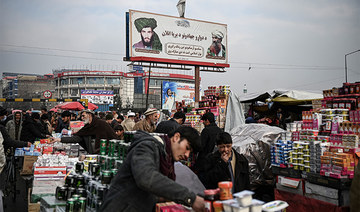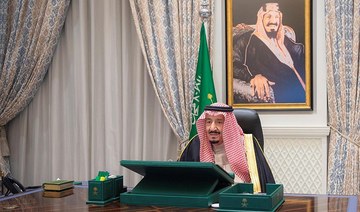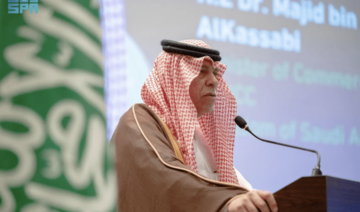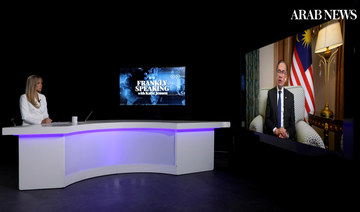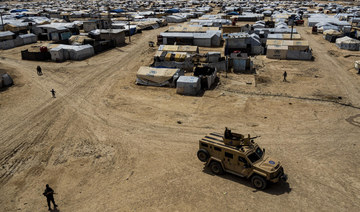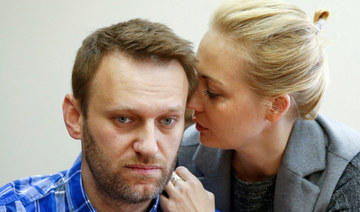BOSTON: Haseena Niazi had pinned her hopes of getting her fiancé out of Afghanistan on a rarely used immigration provision.
The 24-year-old Massachusetts resident was almost certain his application for humanitarian parole would get approved by the US government, considering the evidence he provided on the threats from the Taliban he received while working on women’s health issues at a hospital near Kabul.
But this month, the request was summarily denied, leaving the couple reeling after months of anxiety.
“He had everything they wanted,” said Niazi, a green card holder originally from Afghanistan. “It doesn’t make any sense why they’d reject it. It’s like a bad dream. I still can’t believe it.”
Federal immigration officials have issued denial letters to hundreds of Afghans seeking temporary entry into the country for humanitarian reasons in recent weeks, to the dismay of Afghans and their supporters. By doing so, immigrant advocates say, the Biden administration has failed to honor its promise to help Afghans who were left behind after the US military withdrew from the country in August and the Taliban took control.
“It was a huge disappointment,” said Caitlin Rowe, a Texas attorney who said she recently received five denials, including one for an Afghan police officer who helped train US troops and was beaten by the Taliban. “These are vulnerable people who genuinely thought there was hope, and I don’t think there was.”
Since the US withdrawal, US Citizenship and Immigration Services has received more than 35,000 applications for humanitarian parole, of which it has denied about 470 and conditionally approved more than 140, Victoria Palmer, an agency spokesperson, said this week.
The little-known program, which doesn’t provide a path to lawful permanent residence in the country, typically receives fewer than 2,000 requests annually from all nationalities, of which USCIS approves an average of about 500, she said.
Palmer also stressed humanitarian parole is generally reserved for extreme emergencies and not intended to replace the refugee admissions process, “which is the typical pathway for individuals outside of the United States who have fled their country of origin and are seeking protection.”
The US government, meanwhile, continues to help vulnerable Afghans, evacuating more than 900 American citizens and residents and another 2,200 Afghans since the military withdrawal. The state department said it expects to help resettle as many as 95,000 people from Afghanistan this fiscal year, a process that includes rigorous background checks and vaccinations.
Many of them, however, had been whisked out of Afghanistan before the US left. Now, USCIS is tasked with this new wave of humanitarian parole applications and has ramped up staffing to consider them.
The agency said in a statement that requests are reviewed on an individual basis, with consideration given to immediate relatives of Americans and Afghans airlifted out.
And while USCIS stressed that parole shouldn’t replace refugee processing, immigrant advocates argue that isn’t a viable option for Afghans stuck in their country due to a disability or hiding from the Taliban. Even those able to get out of Afghanistan, they say, may be forced to wait years in refugee camps, which isn’t something many can afford to do.
Mohammad, who asked that his last name not be used out of fear for his family’s safety, said his elder brother, who used to work for international organizations, is among them. He has been in hiding since the Taliban came looking for him following the US withdrawal, Mohammad said.
On a recent visit to the family home, Taliban members took his younger brother instead and held him more than a week for ransom, he said. Now, Mohammad, a former translator for US troops in Afghanistan who lives in California with a special immigration status, is seeking parole for this brother, too. He hopes a conditional approval letter can get them a spot on one of the US evacuation flights still running out of the country.
“I can provide him housing. I can provide him everything,” he said. “Let them come here.”
Immigrant advocates began filing humanitarian parole applications for Afghans in August in a last-ditch effort to get them on US evacuation flights out of the country before the withdrawal.
In some cases, it worked, and word spread among immigration attorneys that parole, while typically used in extreme emergencies, might be a way out, said Kyra Lilien, director of immigration legal services at Jewish Family & Community Services in California’s East Bay.
Soon, attorneys began filing thousands of parole applications for Afghans.
When the US immigration agency created a website specifically to address these applications, Lilien said she thought it was a sign of hope. By November, however, the agency had posted a list of narrow criteria for Afghan applicants and held a webinar telling attorneys that parole is typically granted only if there’s evidence someone faces “imminent severe harm.”
A few weeks later, the denial letters began arriving. Lilien has received more than a dozen but no approvals.
“Once the US packed up and left, anyone who was left behind has only one choice, and that is to pursue this archaic refugee channel,” she said. “It is just so angering that it took USCIS so long to be clear about that.”
Wogai Mohmand, an attorney who helps lead the Afghan-focused Project ANAR, said that the group has filed thousands of applications and that since the US troop withdrawal, has seen only denials.
The despair has led some immigration attorneys to give up on filing parole applications altogether. In Massachusetts, the International Institute of New England is holding off filing new applications until it hears on those that are pending after receiving a flurry of denials.
Chiara St. Pierre, an attorney for the refugee resettlement agency, said she feels clients like Niazi are facing an “unwinnable” battle.
For Niazi’s fiancé, they had provided copies of written threats sent to the hospital where he works as a medical technician and threatening text messages he said came from Taliban members, she said. It wasn’t enough.
A redacted copy of the denial letter provided by St. Pierre lists the USCIS criteria released in November but doesn’t specify why the agency rejected the application, which had been filed in August.
For now, Niazi says her fiancé is living and working far from Kabul as they weigh their options. They could potentially wait until Niazi becomes an American citizen so she can try to bring him here on a fiancé visa, but that would take years.
“He can’t wait that long. It’s a miracle every day that he’s alive,” Niazi said. “I’m feeling like every door is closing in on him.”
___
Taxin reported from Orange County, California.
Hundreds of Afghans denied humanitarian entry into US
https://arab.news/66y52
Hundreds of Afghans denied humanitarian entry into US
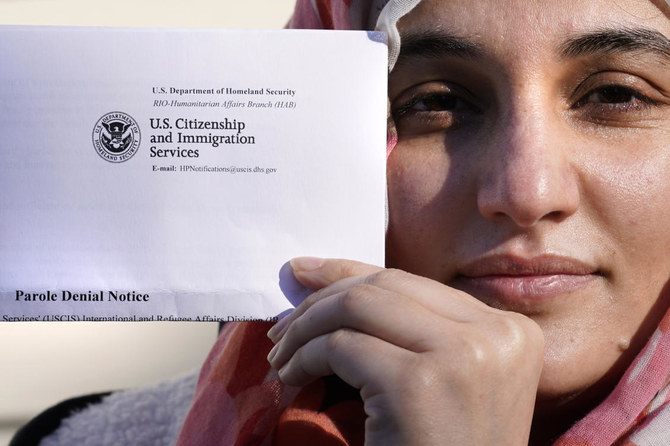
- Federal immigration officials have issued denial letters to hundreds of Afghans seeking temporary entry into the country for humanitarian reasons in recent weeks
- The despair has led some immigration attorneys to give up on filing parole applications altogether
Key debt ratio resumes rise as global debt burden hits record $315 trillion, IIF says
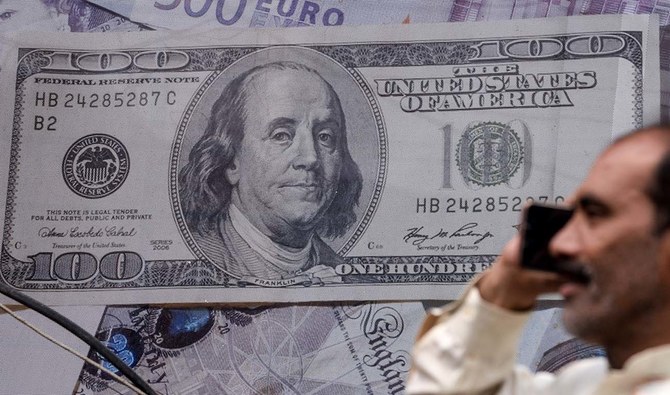
- The turnaround comes as dollar value of global debt surged by some $1.3 trillion quarter-on-quarter
- Pakistan is set to spend above 50 percent of its revenue on interest and Egypt more than 60 percent
NEW YORK: A key measure of world indebtedness has resumed its climb as global debt hit a record high of $315 trillion in the first quarter of the year, fueled by borrowing in emerging markets, the United States and Japan, a study showed.
The global debt-to-output ratio — a measure describing the ability of a borrower to pay back debt — rose to hit 333 percent after three consecutive quarters of decline, the Institute of International Finance (IIF) said on Tuesday in its quarterly Global Debt Monitor report.
The turnaround comes as the dollar value of global debt surged by some $1.3 trillion quarter-on-quarter.
Debt in emerging markets grew to a record of more than $105 trillion — having more than doubled over the past decade according to IIF data.
The largest contributors to the increase among emerging economies were China, India and Mexico. South Korea, Thailand, and Brazil posted the largest dollar value declines in overall debt among the subgroup, the data showed.
“Government budget deficits are still higher than pre- pandemic levels and are projected to contribute around $5.3 trillion to global debt accumulation this year,” the IIF said in a statement. “Rising trade friction and geopolitical tensions also present significant potential headwinds for debt markets.”
Interest rates were expected to have started declining in the United States by now but sticky inflation has seen the Federal Reserve stand its ground.
This has meant higher borrowing costs across the globe and, for many emerging markets, weakened currencies that further exacerbate the cost of servicing debt and “could once again bring government debt strains to the fore,” the IIF said.
Egypt and Pakistan are seen as the emerging economies where the interest expense on government debt will be highest through 2026, with Pakistan set to spend above 50 percent of revenue on interest and Egypt more than 60 percent.
Among developed economies, the United States and Japan saw debt rise the quickest, adding 17 percentage points and 4 percentage points respectively.
Japan is expected to continue to spend on average under 2 percent of government revenue in debt servicing through 2026, according to the IIF. In the US, the figure is expected to rise above 10 percent from the current 8 percent and brush against 12 percent in the same period.
Last month, the International Monetary Fund warned the US level of spending is “of particular concern” and “out of line with long-term fiscal sustainability.”
UK prime minister summons university leaders over pro-Palestinian protests
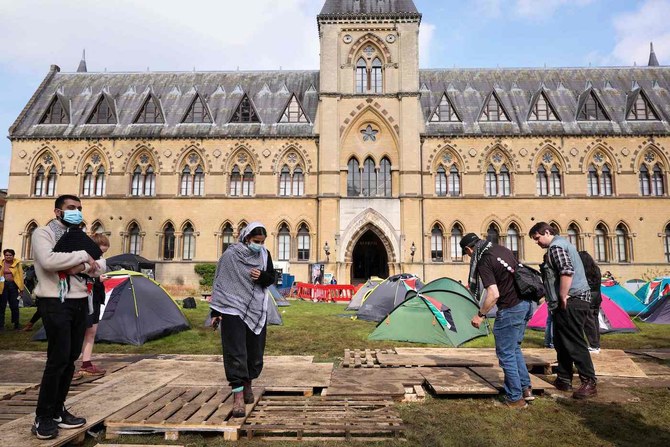
- Meeting to discuss antisemitism, ensuring Jewish students are safe
LONDON: UK Prime Minister Rishi Sunak is to summon the leaders of universities following pro-Palestinian protests that have taken place at campuses across the country.
The meeting will take place this week to discuss antisemitism on campuses and ensuring Jewish students are safe, Sunak told Britain’s Cabinet on Tuesday.
A spokesman for the prime minister said Sunak expected university leaders to take “robust action” in dealing with the protests, The Evening Standard reported.
“Our university campuses should be places of rigorous debate, but they should also be tolerant places where people of all communities, particularly Jewish students at this time, are treated with respect,” the spokesman said.
The “right to free speech does not include the right to harass people or incite violence,” he added.
The summons comes after British students set up pro-Palestinian protest encampments at Oxford and Cambridge campuses on Monday, in a show of solidarity with their American peers.
Cambridge University said its priority was the “safety of all staff and students” and that it was committed to freedom of speech.
“We will not tolerate antisemitism, Islamophobia and any other form of racial or religious hatred, or other unlawful activity,” a spokesperson said.
Pro-Palestinian protests have been taking place at US universities since April 17 and the protests have spread to Europe.
Police broke up student demonstrations in the Netherlands, Germany, and France on Tuesday as Israeli forces seized the main border crossing between Egypt and southern Gaza.
2,000 religious leaders attend Muslim World League conference in Kuala Lumpur

- MWL co-organized international gathering with the Malaysian government
- Prime Minister Anwar Ibrahim delivers speech during the conference
KUALA LUMPUR: More than 2,000 religious leaders and scholars from 57 countries gathered in Kuala Lumpur on Tuesday for a conference organized by the Muslim World League to discuss the role of religion in facilitating dialogue and peace initiatives.
The MWL, an international non-governmental Islamic organization founded in Saudi Arabia in 1962, organized the 2024 International Conference of Religious Leaders with Malaysia’s Department of Islamic Development.
The conference was inaugurated by Malaysian Prime Minister Anwar Ibrahim and MWL Secretary-General Sheikh Dr. Mohammad bin Abdulkarim Al-Issa.
“This religious conference will be an annual feature in Malaysia since it has proved successful in building an understanding and affinity among religions in the world, as well as in Malaysia,” Anwar said during his speech.
“In a conference like this, we can observe the things that need to be done and need to be improved among Muslims, Christians, Buddhists or Hindus. We want to listen to your advice, criticisms and suggestions.”
While about two-thirds of Malaysia’s more than 33 million population are Muslims, there are also large Buddhist, Hindu, and Christian minorities in the country.
“Religious leaders should take an active, effective and courageous role in promoting peace and justice. It is the duty of religious leaders to ensure that governance is guided by strong moral and ethical values,” Anwar said.
Al-Issa said the conference seeks to have a tangible impact.
“This international conference was attended by international, religious, political, intellectual, academic and media leaders. It is considered the first nucleus of a major breakthrough through a number of initiatives and programs around the world, aiming to enhance friendship and cooperation between nations and peoples,” he said.
“Our world is most in need of true solidarity, solidarity with a tangible impact, and is most in need of awareness of the threats threatening its global peace and the harmony of its diverse national communities in their religions and races.”
US repatriates two dozen Westerners from Syria Daesh camp
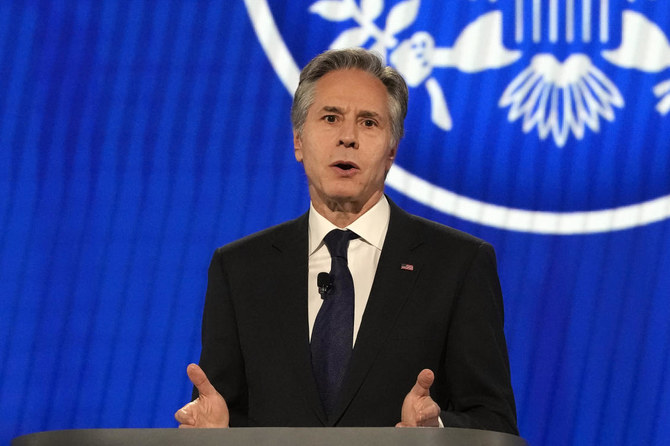
- In a complex operation involving US agencies, Kuwait and pro-US Kurdish fighters, the United States repatriated 11 US citizens
- The US also facilitated the repatriation of six Canadian citizens, four Dutch citizens, and one Finnish citizen
WASHINGTON: The United States announced Tuesday it had brought back two dozen Western citizens, half of them Americans, from a camp for Daesh prisoners in Syria, its largest-ever repatriation as thousands languish.
In a complex operation involving US agencies, Kuwait and pro-US Kurdish fighters, the United States repatriated 11 US citizens, including five minors, as well as a nine-year-old non-US sibling of an American, Secretary of State Antony Blinken said.
The United States in the same operation facilitated the repatriation of six Canadian citizens, four Dutch citizens, and one Finnish citizen, among them eight children, he said.
“This is the largest single repatriation of US citizens from northeast Syria to date,” Blinken said in a statement.
“The only durable solution to the humanitarian and security crisis in the displaced persons camps and detention facilities in northeast Syria is for countries to repatriate, rehabilitate, reintegrate and, where appropriate, ensure accountability for wrongdoing,” he said.
The United States has long pushed European governments to bring back nationals who went to fight for the Daesh group — or their children.
Most European countries have done so but slowly and despite initial reservations, especially in countries with a history of jihadist attacks at home such as France and Britain.
Blinken did not identify the people who were repatriated.
The New York Times, quoting unidentified sources, said they included an American woman, whose Turkish husband apparently took the family to Daesh territory and was later killed, and their nine children.
The Star Tribune of Minneapolis reported last week that a man who joined Daesh but then became a valuable informant was seeking the repatriation of two sons, one apparently the non-US citizen, to be raised by their grandparents in Minnesota.
The repatriations remain controversial in the United States as well, with the administration of former president Donald Trump in one prominent case insisting that a young woman seeking to return was not legitimately a US citizen.
The Kurdish-led Syrian Democratic Forces (SDF) helped US forces crush the Daesh group.
Five years after the extremists were ousted from their last territory, the SDF still holds more than 56,000 detainees with alleged or perceived links to the Daesh group.
Kurdish authorities have been asking foreign governments to repatriate their nationals but Western governments have responded slowly for fear of domestic backlash.
Putin starts new six-year term with challenge to the West
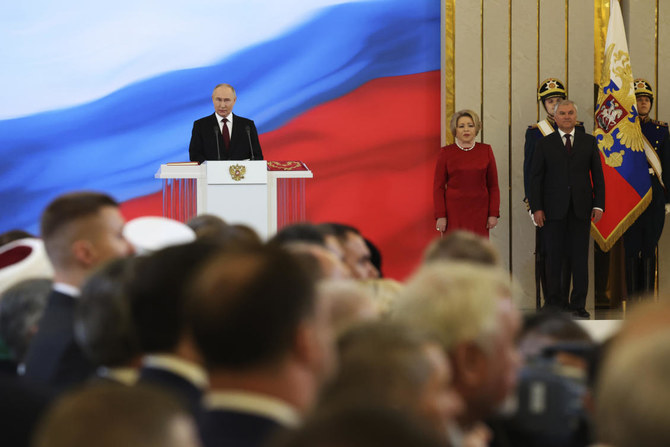
- Putin is sworn in for fifth term
- US and many EU states stay away
- Putin says he’s not ending dialogue with West
MOSCOW: Russian President Vladimir Putin said it was up the West to choose between confrontation and cooperation as he was sworn in for a new six-year term on Tuesday at a Kremlin ceremony that was boycotted by the United States and many of its allies.
More than two years into the war in Ukraine, Putin said he wanted to “bow” before Russia’s soldiers there and declared in his inauguration speech that his landslide re-election in March was proof the country was united and on the right track.
“You, citizens of Russia, have confirmed the correctness of the country’s course. This is of great importance right now, when we are faced with serious challenges,” he told dignitaries in a gilded Kremlin hall where a trumpet fanfare sounded to greet his arrival.
“I see in this a deep understanding of our common historical goals, a determination to adamantly defend our choice, our values, freedom and the national interests of Russia.”
At 71, Putin dominates the domestic political landscape. Leading opposition figures are in prison or exile, and his best known critic, Alexei Navalny, died suddenly in an Arctic penal colony in February.
Yulia Navalnaya, the late dissident’s wife, urged supporters in a video on Tuesday to keep up the struggle against Putin. “With each of his terms, everything only gets worse, and its’ frightening to imagine what else will happen while Putin remains in power,” she said.
On the international stage, Putin is locked in a confrontation with Western countries he accuses of using Ukraine as a vehicle to try to defeat and dismember Russia.
Putin told Russia’s political elite after being sworn in that he was not rejecting dialogue with the West, including on nuclear weapons.
“The choice is theirs: do they intend to continue trying to restrain the development of Russia, continue the policy of aggression, incessant pressure on our country for years, or look for a path to cooperation and peace?” he said.
With Russia’s troops advancing gradually in eastern Ukraine, the top US intelligence official said last week that Putin appeared to see domestic and international developments trending in his favor and the conflict was unlikely to end anytime soon.
It remains unclear how far Putin will seek to press the war and on what terms he might discuss ending it — decisions that will depend in part on whether Joe Biden or Donald Trump wins the US presidential election in November. Ukraine says peace can only come with a full withdrawal of Russia’s troops, who control nearly 20 percent of its territory.
Western absentees
Putin, in power as president or prime minister since 1999, will surpass Soviet leader Josef Stalin and become Russia’s longest-serving ruler since 18th century Empress Catherine the Great if he completes a new six-year term. He would then be eligible to seek re-election again.
He won victory by a record margin in a tightly controlled election from which two anti-war candidates were barred on technical grounds. The opposition called it a sham.
The United States, which said it did not consider his re-election free and fair, stayed away from Tuesday’s ceremony.
Britain, Canada and most EU nations also decided to boycott the swearing-in, but France said it would send its ambassador.
Ukraine said the event sought to create “the illusion of legality for the nearly lifelong stay in power of a person who has turned the Russian Federation into an aggressor state and the ruling regime into a dictatorship.”
Sergei Chemezov, a Putin ally, told Reuters before the ceremony, that Putin brought stability, something which even his critics should welcome.
“For Russia, this is the continuation of our path, this is stability – you can ask any citizen on the street,” he said.
Nuclear tensions
Russia’s relations with the United States and its allies are at their lowest point since the Cuban Missile Crisis of 1962, when the world came to the brink of nuclear war.
The West has provided Ukraine with artillery, tanks and long-range missiles, but NATO troops have not joined the conflict directly, something that both Putin and Biden have warned could lead to World War Three.
Underscoring the rise in nuclear tensions, Russia said on Monday it would practice the deployment of tactical nuclear weapons as part of a military exercise, after what it said were threats from France, Britain and the United States.
One of the decisions awaiting Putin in his new term will be whether to seek to renew or replace the last remaining treaty that limits Russian and US strategic nuclear warheads. The New START agreement is due to expire in 2026.
In line with the constitution, the government resigned at the start of the new presidential term. Putin ordered it to remain in office while he appoints a new one which is expected to include many of the same faces.



